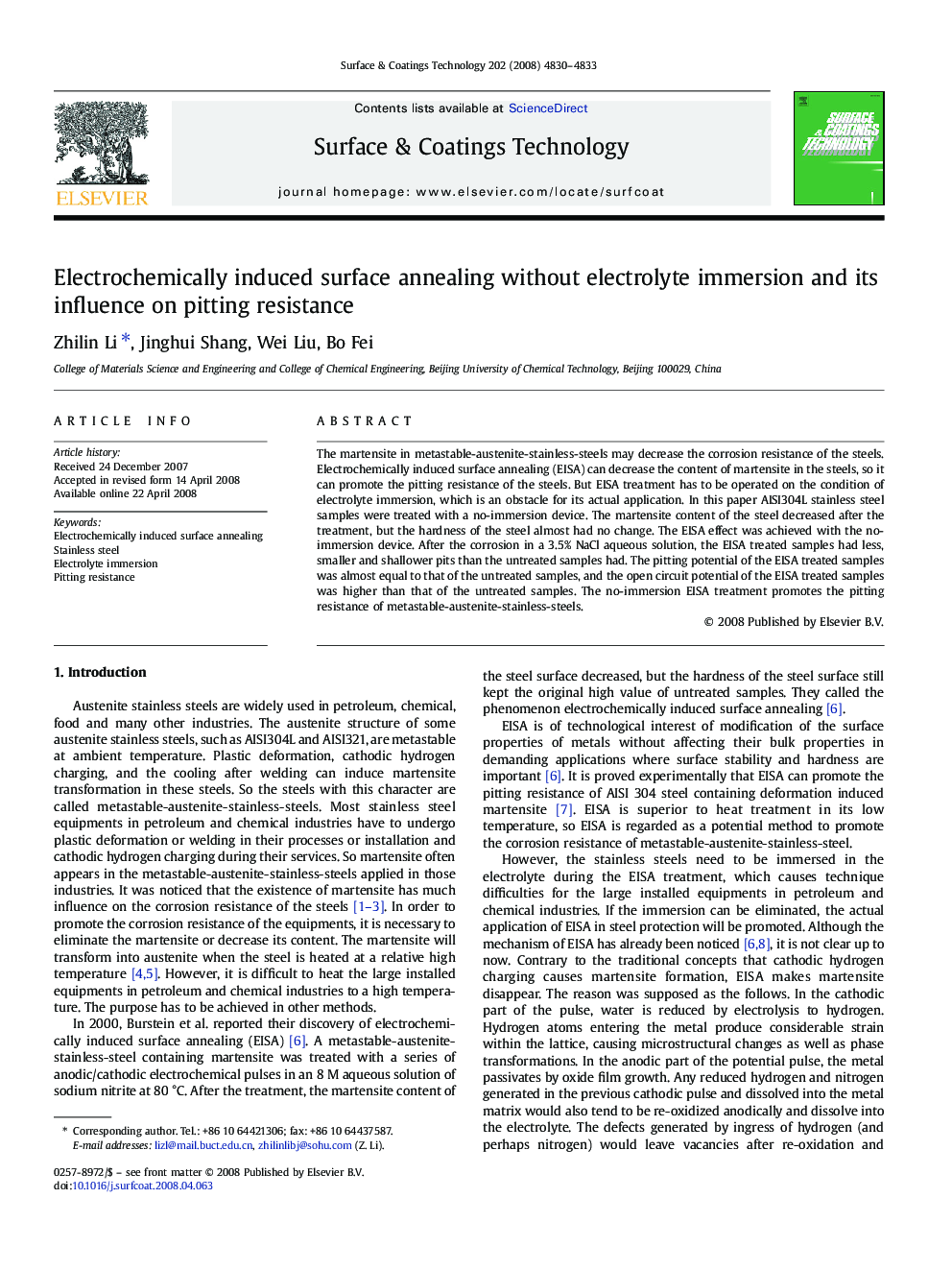| Article ID | Journal | Published Year | Pages | File Type |
|---|---|---|---|---|
| 1660645 | Surface and Coatings Technology | 2008 | 4 Pages |
The martensite in metastable-austenite-stainless-steels may decrease the corrosion resistance of the steels. Electrochemically induced surface annealing (EISA) can decrease the content of martensite in the steels, so it can promote the pitting resistance of the steels. But EISA treatment has to be operated on the condition of electrolyte immersion, which is an obstacle for its actual application. In this paper AISI304L stainless steel samples were treated with a no-immersion device. The martensite content of the steel decreased after the treatment, but the hardness of the steel almost had no change. The EISA effect was achieved with the no-immersion device. After the corrosion in a 3.5% NaCl aqueous solution, the EISA treated samples had less, smaller and shallower pits than the untreated samples had. The pitting potential of the EISA treated samples was almost equal to that of the untreated samples, and the open circuit potential of the EISA treated samples was higher than that of the untreated samples. The no-immersion EISA treatment promotes the pitting resistance of metastable-austenite-stainless-steels.
